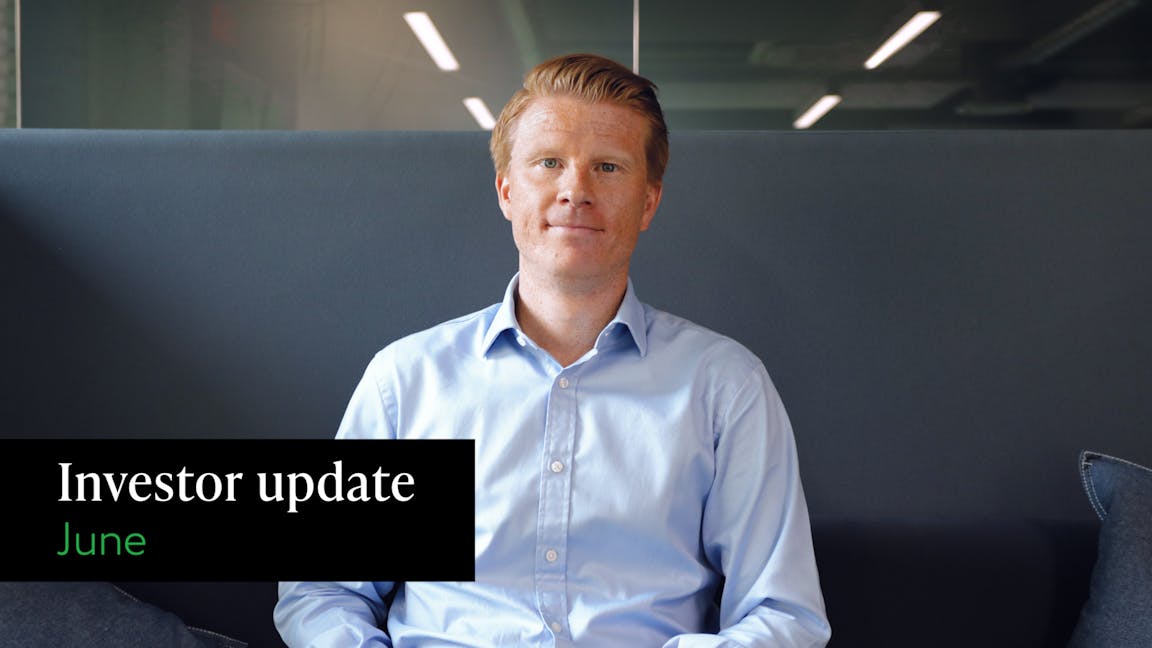
In this month’s update, Nutmeg’s chief investment officer, James McManus, outlines how the UK appears to be lagging other countries when it comes to controlling inflation, while also updating us on the latest from China as it continues to work its way back to full capacity.
How did global financial markets perform during May?
At a headline level, global equity markets appear to have moved little in May, but that doesn’t tell the whole story given the disparity in performance between regions – while the US and Japanese equity markets posted positive returns, UK, European and emerging markets saw losses.
The Bank of England, the US Federal Reserve, and the European Central Bank all increased interest rates by a further +0.25% during the month, though markets remain fixated on inflation numbers and signs of how effective these policy moves are in slowing price rises.
Government bond markets are particularly sensitive to increases in interest rates and inflation data, with both UK and US ten-year bonds trading at higher yields during the month, meaning their values fell.
The ten-year UK gilt yield, the amount the UK government pays to borrow money for ten years, has climbed above 4%, to levels not seen since last summer's Budget drama and now higher than the US Treasury equivalent, suggesting investors are particularly nervous about the Bank of England’s next move.
How did central banks contribute to bond market uncertainty during the month?
Central bank policymakers continue to hold sway over the mood of bond investors, but it is the inflationary picture, and what this means for monetary policy in terms of the direction of interest rates, that remains top of the agenda.
In the UK, the Bank of England surprised investors by significantly revising up its economic growth forecast in May, meaning it no longer expects the UK to enter into recession this year. GDP is now expected to be flat over the first half of 2023, growing 0.9% by the middle of 2024 and 0.7% by mid-2025.
Bank governor, Andrew Bailey, insisted in May that inflation has “turned the corner”, despite huge rises in the price of food this year and broad inflation levels far above the Bank’s target. But against that better economic growth forecast, recent inflation data continued to unnerve UK bond market investors. While the Consumer Prices Index (CPI) fell from 10.1% in March to 8.7% in April, the UK core price inflation, that’s removing the effects from food and energy, climbed from 6.2% to 6.8%.
In a bid to slow price rises, markets now expect that the Bank of England will raise its interest rates to between 5.25-5.5%, from the current level of 4.5%, before the end of this year.
Has the inflation story been consistent outside of the UK?
Mainland Europe may be slightly ahead of us on the curve, with the pace of inflation there having slowed to a level not seen since before the conflict in Ukraine. The Consumer Prices Index in the eurozone countries came in at 6.1% in May, easing from 7% in April. Core inflation there slowed to 5.3% — a four-month low.
The US is also seeing broad measures of inflation fall, CPI coming in at 4.9% in April, with the annual CPI rate having fallen consistently since hitting a 40-year high of 9.1% last June.
The chair of the Federal Reserve, Jerome Powell, has stressed that although the central bank may soon begin to pause increases, if inflation data continues to show progress, interest rates are likely to remain high as long as inflation remains at elevated levels. It's important to remember than despite a fall in these figures, prices are still rising at a pace above that of central banks’ targets.
Can you give us an update on what’s been happening in emerging markets?
Late last year, we spoke about how the easing of strict Covid restrictions had the potential to boost the prospects for the Chinese economy, and emerging markets more broadly this year given the important role China plays in global and emerging market trade. That economic reopening was always going to take time after three years of restrictions, but so far this year we’ve seen positive green shoots in some areas of the economy, particularly in the services sector.
One way for investors to measure economic activity in a country is through what’s called a purchasing managers’ index (or PMI), which collates the views of key business leaders in how confident they are about growth. Services PMI’s in China remain in expansion mode, as consumers slowly return to their pre-lockdown behaviours.
But the latest results in late April and May from the Chinese PMI’s show a different story for the manufacturing sector – there are signs that Chinese factory activity is contracting, against a slowing global trade environment. This picture also reflects what we see in western economies, where manufacturing is weak and services sectors strong; yet unlike the US and UK, China’s dependence on exports means this is a greater challenge for economic growth.
Resilient western economies and falling global inflation should help support trade but we will be watching the Chinese economy closely as the reopening progresses. The opportunity for a global economic boost from the region remains however, with the IMF recently stating it expects Asia Pacific nations to contribute over 65% of global economic growth in 2023.
The Nutmeg investor update is available as a podcast. Listen to this month’s update below.
About this update: This update was recorded on 6th June 2023. All figures, unless otherwise stated, relate to the month of May 2023.
Source: MacroBond, Nutmeg and Bloomberg.
Risk warning
As with all investing, your capital is at risk. The value of your portfolio with Nutmeg can go down as well as up and you may get back less than you invest. Past performance and forecasts are not reliable indicators of future performance.




